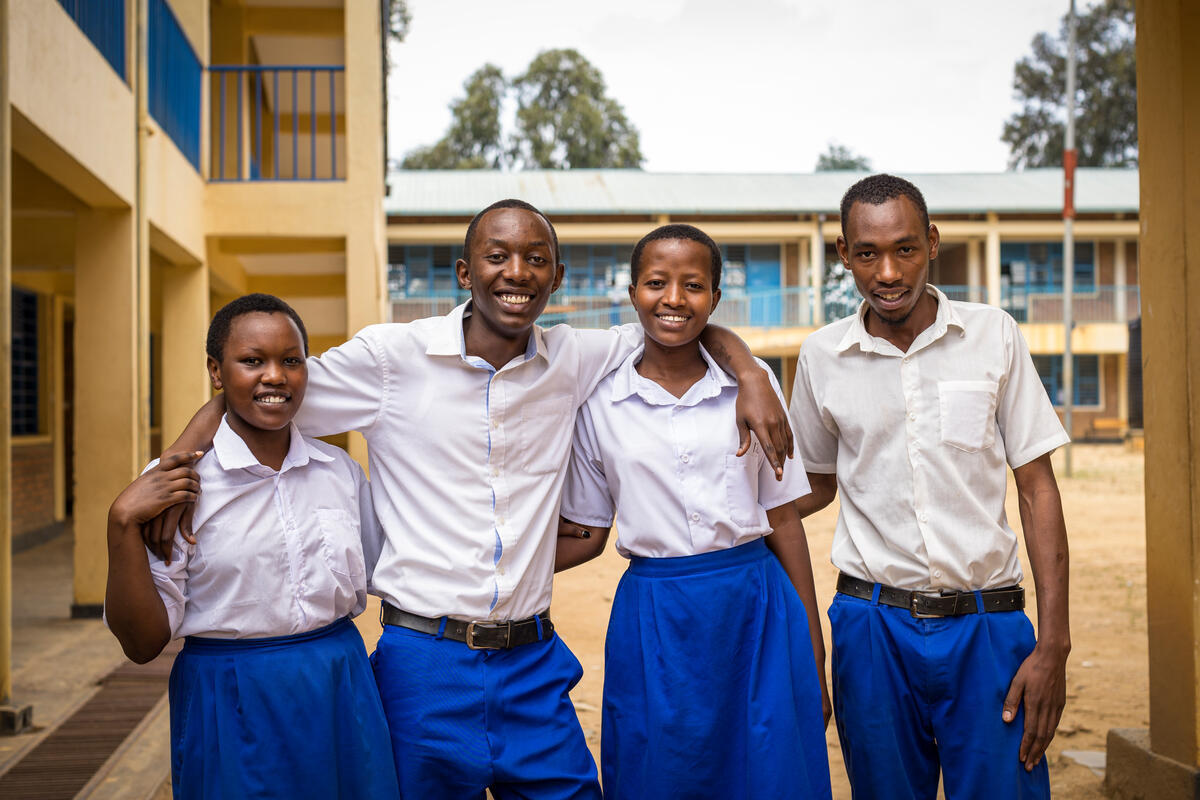 Republic of the Congo stand outside with their arms around each other" width="900" height="505" />
Republic of the Congo stand outside with their arms around each other" width="900" height="505" />UNHCR works to ensure refugee children and young people can access quality education.
Education offers a stable and safe environment for displaced children, helps people to rebuild their communities, and pursue productive, meaningful lives.
 Republic of the Congo stand outside with their arms around each other" width="900" height="505" />
Republic of the Congo stand outside with their arms around each other" width="900" height="505" />
Zaninka, Frank, Tuyishime and Dieu Merci (from left to right) are Senior 6 students at College Amahoro (upper secondary school), in Kiziba refugee camp, Rwanda. Tuyishime and Frank study Literature, French and Kinyarwanda while Zaninka and Dieu Merci study Maths, Economics and Geography.
© UNHCR/Antoine TardyOf the 31.6 million refugees under UNHCR’s mandate, approximately 14.8 million are refugee children of school age. Their access to education is limited, with almost half of them unable to attend school at all.
At pre-primary level, the average gross enrolment rate for the academic year 2022 to 2023 for reporting countries was 37 per cent.
For primary level, the corresponding rate for reporting countries was 65 per cent. For secondary level, it was 42 per cent, illustrating that significant structural barriers remain for refugee learners to access post-primary education. Per reporting in 2018, at least 35 per cent of refugee children were not attending primary school and at least 75 per cent of adolescents were not attending secondary school. Five years after the launch of Education 2030: A Strategy for Refugee Education, there are signs of progress. Furthermore, continual improvements in data collection and reporting help to provide the most detailed picture yet of the state of refugee education and enrolment.
At tertiary level, the enrolment rate for the academic year 2022 to 2023 was at 7 per cent. This marks an increase of 4 percentage points since 2019. While this is a transformational change for thousands of young people and their communities, further coordinated, committed and sustained engagement of partners is critical to achieve the goal of 15 per cent by 2030.
The New York Declaration for Refugees and Migrants pinpoints education as a critical element of the international refugee response. Furthermore, Sustainable Development Goal 4 aims to deliver “inclusive and quality education for all and to promote lifelong learning”. UNHCR partners with governments and international organizations to ensure quality protective education for refugee children and young people everywhere.